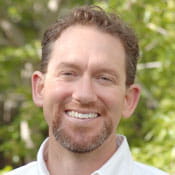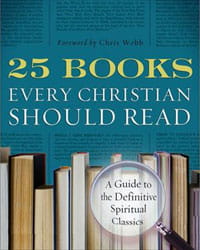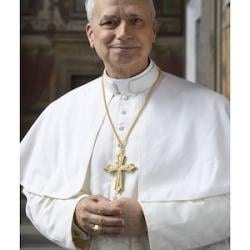 With a background in retail business and inner-city ministry, Lyle SmithGraybeal has been involved with Renovaré,—the non-profit organization devoted to Christian spiritual formation—in one aspect or another for most of 20 years. He is currently the Renovaré Coordinator, is the staff liaison for Renovaré Brasil and Renovaré Korea, and with Felicia, his spouse, is a contributor to The Life with God Bible.
With a background in retail business and inner-city ministry, Lyle SmithGraybeal has been involved with Renovaré,—the non-profit organization devoted to Christian spiritual formation—in one aspect or another for most of 20 years. He is currently the Renovaré Coordinator, is the staff liaison for Renovaré Brasil and Renovaré Korea, and with Felicia, his spouse, is a contributor to The Life with God Bible.
SmithGraybeal served as the Project Managing Editor for the new resource 25 Books Every Christian Should Read: A Guide to the Essential Spiritual Classics. (Visit the Patheos Book Club for more conversation on this book.) We invited SmithGraybeal to share more about the project, including how the books were selected, why spiritual reading is so critical, why there aren't any living authors on the list, and which books almost make the cut, but didn't.
 25 Books Every Christian Should Read-that's a title that will quickly provoke a response. Why such an authoritative name?
25 Books Every Christian Should Read-that's a title that will quickly provoke a response. Why such an authoritative name?
Recently, in the last one hundred years or so, we Christians have under-emphasized bodily practice. For sure spiritual disciplines have not been completely lost; whenever we attend worship or pray or read the Bible or perform any other act of piety we are involving our bodies. Nevertheless, too often Christianity is merely a system of belief, a head trip rather than an embodied discipline. The writings dwelt on in 25 Books are about practice, a sort of devotional or pietistic history of the Church. What we do with our bodies in our discipleship to Jesus is where we live day-to-day, and this book provides us the background for the motivation and many of the practices that we can use for this daily engagement. So the books on this list are a must for any Christian that wants to live a daily discipleship in the tradition of the historic Church.
Where did the idea for 25 Books come from?
John Wesley, the catalyst for what became the Methodist church, had "A Christian Library," or otherwise titled by him, "Extracts from and Abridgments of the Choicest Pieces of Practical Divinity Which Have Been Published in the English Tongue." Whew! His project originally included fifty volumes, all with numerous books and sermon excerpts. Double whew!! For a long time we thought it would be fun and helpful to update Wesley's idea from a more modern perspective. 25 Books is the result.
The introduction to 25 Books provides a short tutorial on spiritual reading. Why is spiritual reading important? How are books for spiritual reading different than other types of reading, even Christian reading like apologetics and theology?
Jesus wants to transform our heart, soul, mind, and strength (or body). Spiritual reading has to do with the life of the heart. Topics like theology and apologetics are vital for any Christian, but at the same time their focus is rational thought—how do we understand God, how do we convince others that God exists as we know God in Jesus Christ? We can engage in all of these types of reading and, as a result, attain a fuller Christian life. Spiritual reading balances out the formation of our minds and hearts.
What happens when you read these books? What is the goal?
The goal, plain and simple, is formation in Christlikeness. What happens is we take ideas of value into our minds through our eyes which, upon reflection, seep down into our hearts and, eventually, transform our behavior. In the process we become more like Jesus.
What does each chapter contain?
In each chapter, following a brief biographical sketch of the book's author, Julia Roller, the primary author for 25 Books, has written a 30,000-foot overview of a book, an explanation of why it is vital, and some hints on reading it. There is then around a two thousand-word excerpt for each book, which is a good chunk. And each chapter ends with a study guide, mostly for the excerpt but with a couple of questions for the book as a whole.
25 Books also contains an appendix with some important contemporary authors and their writings and "My Personal Top 5" book lists from each of the editorial board members and other Christian leaders like Brian McLaren, Mindy Caliguire, and Jonathan Wilson-Hartgrove peppered throughout the text.




